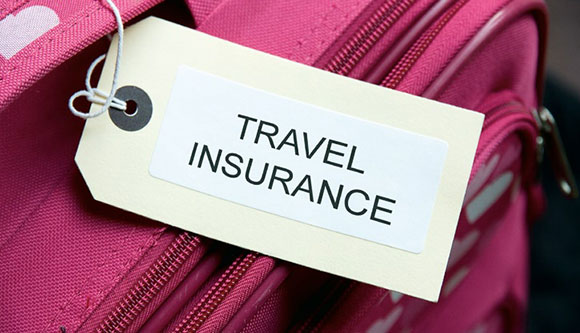Travel Insurance Primer
By Benedict Baluyut, RFP®
Have you ever thought of yourself having a wonderful time basking in the sun and sitting in the beach and sipping a cool beverage and watching the sea and feeling the cool salty breeze of sea wind? But what if you get sick on your vacation, had an accident while trying to surf because of the heavy waves, or your airplane had engine trouble and crash landed to the sea?
It may sound morbid, absurd and far-fetched but what if these things happen to you?
Travel Insurance:
What it can do for you
It is a type of insurance that provides the insured with comprehensive shield from accidents, illnesses and other travel related difficulties or bad situations we might encounter. This type of insurance is ideal for holiday makers or even frequent travelers either domestic or overseas.
Premiums of travel insurance
Rates of travel insurance may vary depending on the available packages offered by the insurance companies whether it will be a domestic travel or international travel. Domestic travel insurance (travel within the Philippines) for one to four days at P230 with P500,000 worth of insurance coverage; international standard travel is at P282 for one to four days with P1 million worth of insurance coverage, international comprehensive rates at P562 for one to four days with P2.5 million worth of insurance coverage.
Where to get travel insurance
Travel insurance is usually offered by general insurance companies registered under Securities and Exchange Commission and the Insurance Commission.
Bundled packages for group travelers especially families are also available and have more discounted prices. Travel tour and airline companies with tie-up or affiliation with insurance companies also offer insurance in their package tours. Frequent flyers mileages are sometimes given to frequent travelers for free or at lower cost depending on the promotion of the travel and airline companies affiliated with insurance companies.
Benefits and coverage of travel insurance policies
The more common general description and coverage that are usually covered by travel insurances are:
- Medical emergency and hospitalization expenses – Covers the usual, customary, necessary and reasonable costs of hospitalization, surgery, medical fees and pharmaceutical products in case of accident or illness while travelling abroad.
- Emergency medical evacuation and repatriation – This coverage provides for medically necessary evacuation to a medical facility, medically equipped flights to return home, or the repatriation of mortal remains to your primary residence.
- Return of a dependent minor – The insurance company arranges and pays the return trip of dependent children traveling with you returned if in case of bad situations or accidents.
- Trip cancellation – The insurance company reimburses the non-refundable travel expenses as a result of the trip being cancelled due to death or sickness or any other cause covered by the policy.
- Trip disruption or delay – The insurance company reimburses expenses incurred (transport and hotel accommodation) if flight is delayed by eight hours or more due to a cause covered by the policy.
- Personal accidental death, injury or dismemberment – This is a policy that pays the principal sum to the beneficiaries of the insured if the accident results in death within 90 to 180 days from the date of accident (This may vary depending on the insurance provider.).
- Funeral and burial expenses – This ensures funeral expenses are taken cared of for the insured. The family of the insured does not need to worry about these expenses if the insured passed away.
- Lost baggage, personal effects or travel documents – The insurance company pays for the loss or damage to baggage or personal items of the insured.
- Aircraft hijack – In the event of an unlawful intent and seizure of an airplane while traveling abroad, the insurance company shall pay to the insured a fixed amount of daily benefit for aircraft hijacks in excess of 12 hours for a maximum period of 10 days.
Exclusions on travel insurance policies
-
Pre-existing medical condition
Basically, all travel insurance policies state that the insurance company will decline any medical claim based on a pre-existing medical condition i.e. asthma, Type 2 diabetes and other illnesses either existing or cured. It may sound unfair and pessimistic on the intended travel plans but there are options for individuals with pre-existing medical conditions that need to be addressed.
What the insurance company could do
- Offer a standard travel insurance policy depending on the type of condition
- Offer a travel insurance policy at a much higher value
- Exclude medical coverage for certain pre-existing conditions
- Set a certain restrictions, limitation and term with higher payment value
What a potential traveler with preexisting condition can do to avail of travel insurance or options
Most insurance companies will allow the exemption for pre-existing condition if they meet certain requirements:
- An individual buys insurance within 14 days of making a first trip, initial payment or deposit. Insure the full value of your prepayments including the non-refundable airline tickets from which a potential traveler could recover at least a portion of the face value.
- The individual is medically able to take the journey on the day he or she bought the plan.
- The total cost of the trip is US$50,000 per person or less (the equivalent to where he/she is going to travel either in Europe or elsewhere).
- War or terrorism – Traveling to a country or place where there is political disturbance or conflict could invalidate your insurance coverage. But some plans or insurance companies may cover this risk, and some do cover for acts of terrorism as well but with a higher price.
- Injury or illness caused by alcohol or drug use – May it be used for recreational or other purposes could lead to arrest due to disorderly behavior or even death due to intoxication which is primarily not covered by the insurance companies
Things to do before acquiring travel insurance
- Get a quote first and compare – Get a quote from the insurance companies and make comparison on what policy is that suits your need;
- Read the fine print on the actual policy – Check policy and disclosure of insurance company especially for people with pre-existing health conditions may it be a minor or major ailment or cured at all.
So have you prepared already? Other than the tickets, pocket money, camera, map and other travel essentials. Have you availed of the travel insurance policy? Get peace of mind before you take off.




